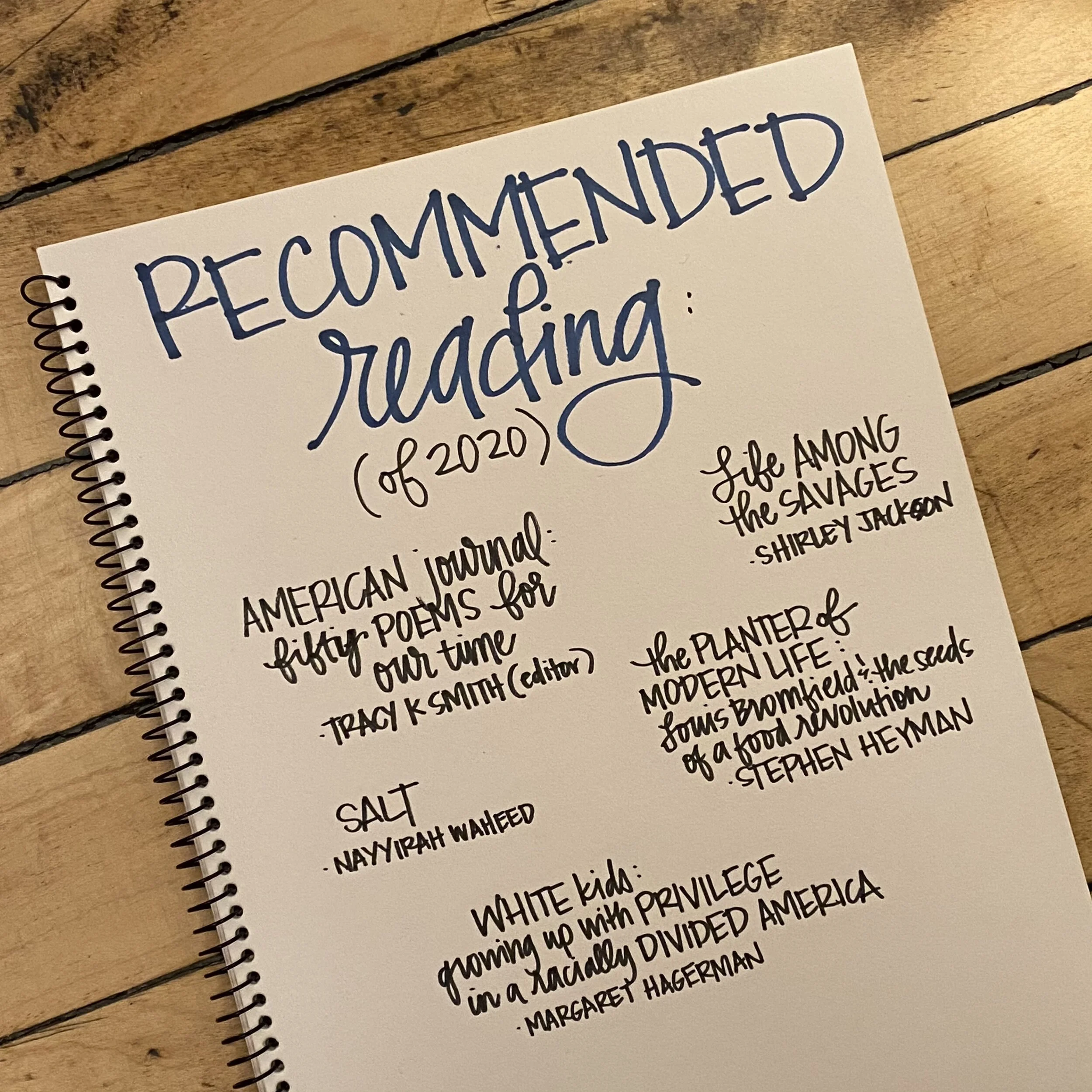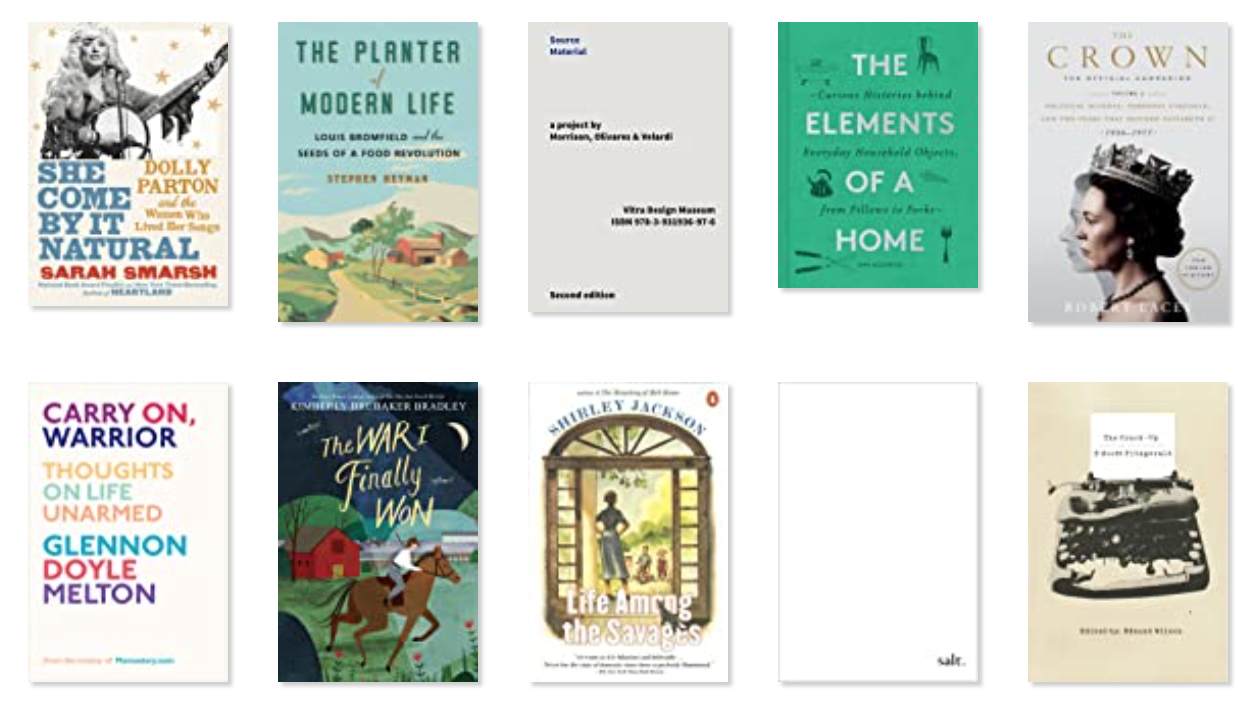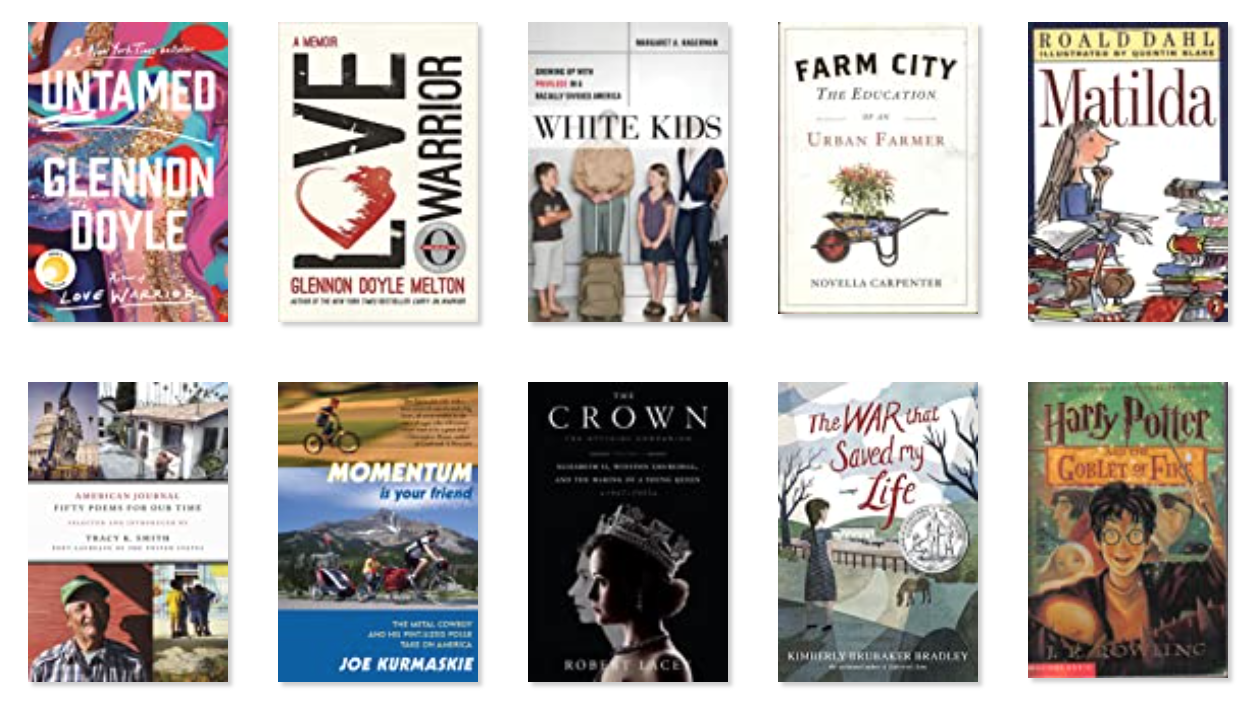I read more than I thought I would this year. Despite Harvard case studies taking up much of the first 6 months of the year, I was able to cross several books off my list that had been lingering. I finally finished F. Scott Fitzgerald’s The Crack Up, and while I loved it, I didn’t add it to my “Recommended Reading” list below, which I’ve kept intentionally short.
Outside of Young Adult novels, which I read to my son each night, I didn’t read much fiction this year. I was more into real people and what they had to say about their lived experiences. Maybe it seemed more social, like I had another connection out there in this isolated world this year.
Hands down the best book I read was Life Among the Savages by Shirley Jackson. I’ll copy here from my Goodreads review:
A masterpiece of a memoir. Only covering about 5 years time, the picture she paints of her life in a sprawling Vermont home filled with kids and cats and books seems representative of a lifetime of mundane adding up to grandeur. You don't have to have kids or know anything about the 1940s to appreciate how timeless these anecdotes and conversations and domestic trappings are. A trenchant wit, a masterful writer, and apparently a peculiar and amazing mother. Definitely recommend.
Poetry was also toward the top of my list - perhaps because it is easily digestible in bites, or perhaps because it gave me something to ponder other than current circumstances. Regardless, I recommend everyone read American Journal: Fifty Poems from our Time, edited by Tracy K Smith (Poet Laureate). A poignant reminder of the many facets of our country. And Salt is necessary reading; I’m looking forward to reading her second book Nejma.
The most surprising book on my short list is The Planter of Modern Life: Louis Bromfield and the Seeds of a Food Revolution, which you might think was fiction based on the almost-unbelievable exploits of the main character. Bromfield (who is know almost unknown) was a WWI ambulance driver, a Paris expat, and a Pulitzer Prize-winning novelist as famous his contemporaries, Hemingway, Fitzgerald and the like. He moved to Senlis, outside of Paris, and fell in love with gardening (and his neighbor Edith Wharton). Only to return to the states and cash in his literary and Hollywood success to finance his agrarian dream in Ohio. His utopian experimental farm, Malabar, inspired America’s first generation of organic farmers and put environmentalism and agriculture in the American conversation. It was an outrageous but true story I couldn’t believe I didn’t know.
For parents with kiddos, or anyone in the education system, I recommend White Kids: Growing up with Privilege in a Racially Divided America. It provides remarkable case studies, and makes you consider your own choices and their impact. Read my full review here.
Full 2020 bookshelf is pictured below. Hoping to get to more fiction next year. The Overstory is at the top of my list.


